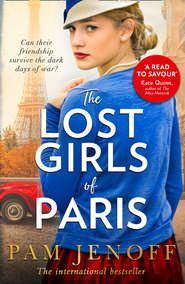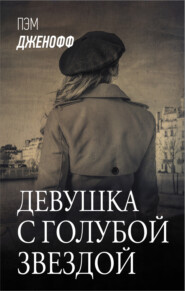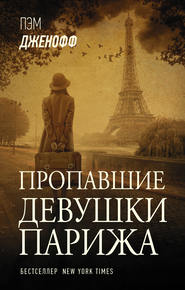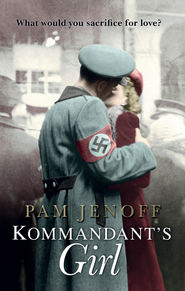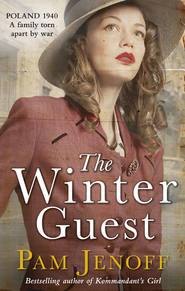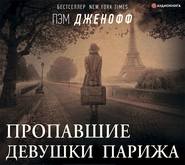По всем вопросам обращайтесь на: info@litportal.ru
(©) 2003-2024.
✖
The Last Embrace
Настройки чтения
Размер шрифта
Высота строк
Поля
“You should be. He’s gone from school more often than he’s there and those kids he hangs out with are awful. We have to do something.”
“Like what?”
I searched for an answer. Liam wouldn’t listen to us. Telling the Connallys and getting him in further trouble would only make things worse. “I’ll be right back.”
I raced downstairs and outside after Charlie, who had changed into his practice jersey and was climbing on his bike, shoulder pads slung over the handlebars. He turned and my breath caught, as it always did when he was near. “What is it, Ad?” he asked. “I’ve got to practice.” But his eyes were soft, his voice warm. What would he do if I kissed him right now?
“I’m worried about Liam.” He cocked his head, not following. How could he not have noticed? “He’s missing school a lot.”
“He’s always been a wild kid, Addie. He just loves to give Mom and Dad the business.”
“But it’s different now. He could be drinking.” Though I had not seen Liam with beer or liquor, I knew from conversations I’d overheard at school that some of the wilder kids drank. “Or worse.”
“It’s a phase. He’ll get over it.”
“What if he doesn’t?” I pressed.
Charlie’s brow wrinkled fleetingly. “I’ll talk to him, I promise. But right now I’ve got to get to practice.” He rose up on the pedals and started forward. “Don’t worry,” he called over his shoulder as he pedaled away, his voice fading in the wind. Longing tugged at my stomach. If only he would see what was going on with Liam. If only he would see me.
I started back through the living room toward the stairs. “Addie,” Robbie called in a stage whisper, though no one else was around to see or hear. His head stuck out from a doorway beneath the stairs. He’d first shown me his secret hiding place in early fall, waving me in from the dining room during one of my visits while the others were busy debating the Lend-Lease Act to a small door that I had always assumed was a broom closet. I lowered my head and peered inside. “Come in,” he’d urged. The tiny space with its low ceiling was barely big enough for the two of us, but he had decorated it with photos and pictures he had done at school and put two pillows on the floor. I’d squeezed onto one of them. “My hideaway.” I understood. The house was so overrun, two boys to a bedroom, noise in every corner. This was the one place he could call his own. “No one else knows,” he’d whispered. Though quite sure his mother did, I nodded solemnly, flattered that I was the one with whom he had shared his secret.
I hesitated as he waved me in now; Jack was waiting for me upstairs to finish homework. But I slid into the closet and Robbie curled up under the crook of my arm in a way he surely would not do for much longer.
“Look,” he said, pointing to the sloped ceiling of the closet. He’d stretched black paper across it and in white he’d sketched the stars, trying to replicate the constellations. “I don’t have them quite right,” he fretted. I imagined how he’d worked on the design, biting his lip with grim concentration as he tried to get the positioning of the stars just right.
“You should ask Liam.” Last summer at the beach, Liam was forever pointing out the different patterns of stars visible in the night sky. His eyes would light up as he explained a particular constellation; it was the closest I’d seen him to taking an interest in something.
“He’s never around anymore.” Robbie’s words were a refrain of my earlier conversations with Jack and Charlie. Even at eleven, Robbie could see the change in his brother. My anger toward Liam rose: couldn’t he see that Robbie looked up to him, and needed him in the same way that he needed Charlie? “Charlie’s always practicing, and you and Jack are busy with homework.” Robbie’s voice was dangerously close to a whine now. “I’m bored.”
“Wait here.” I walked to the living room and picked up the chess set that the Connallys had given me. I’d left it here for the occasional game with Jack, since neither my aunt nor uncle played.
Robbie’s eyes widened as I lowered the chess set into his hideaway. “Dad says I’m too young.”
“Not at all. I started playing when I was seven.” I held up the first piece. “This is the pawn and it moves a single space straight ahead, but diagonally...”
From outside the closet there came a clattering. At first, I thought it was Jack, coming to see where I had gone. But Mr. Connally’s voice, low and urgent, rose from the entranceway. “What on earth?” I unfolded myself from the closet, meeting Jack as he came down the stairs. We found Mr. Connally in the kitchen with his wife. His usually jovial expression was dark as a storm and he did not greet me. A rock formed in my stomach. “What’s happened?”
Grim-faced, he turned on the radio: “The Japanese have attacked Pearl Harbor, Hawaii, by air... The attack also was made on all military and naval activities on the principal island of Oahu...”
“America will enter the war for sure now,” Jack said.
My heart lifted: surely the United States would declare war on the Germans, too. But Mrs. Connally was gripping the counter, knuckles white. “What’s wrong?” I asked, forgetting not to be forward. “Don’t you want the Americans to help? I know that the Quakers don’t believe in fighting but surely now that it’s for good reason...”
“It’s not that,” Mrs. Connally replied quietly.
“Then what?”
“Our boys are too young,” Mr. Connally soothed, reading her unspoken thought. “And it will be over quickly.”
“Yes, of course.”
Charlie ran in breathless, still wearing shoulder pads under his practice jersey. “The Japs bombed...” He stopped, realizing we had already heard. We stood huddled for several minutes, listening to the reports of the devastation in Hawaii, ships destroyed, casualties possibly in the thousands. I had seen the edges of war in Italy, homes burned and shop windows smashed, people arrested. But the scope of the damage described on the radio was simply unfathomable.
Charlie cleared his throat. “Will you go down to the enlistment center with me tomorrow, Dad?” he asked. His mother’s face seemed to fold with horror, as though her worst nightmare had come true.
“You’ll be eighteen soon,” his father said grudgingly. “I suppose you’ll need to register.”
Charlie shook his head. “Not just register. I want to join up.” My heart stopped. Charlie could not go to war.
“Charlie, no. You need to finish school. You may not even get drafted.”
“You don’t understand. I want to go now.” His eyes burned bright with an idealism that made me love him even more. “There’s a chance to make a difference and really help.”
Liam slammed through the door. “Mom, I was just...” Then, seeing us gathered, he stopped short. “What gives?”
“The Japanese attacked our base in Hawaii,” Mrs. Connally said. “And your brother wants to enlist.” She did not have to say which one.
Liam rolled his eyes. “Figures.”
“There’s no need to enlist. The war won’t last long,” Mrs. Connally said. This was the first time I had seen the Connallys disagree. As much as I wanted to be part of their family, I felt like an intruder listening in.
“Exactly. I want to go now, while I can help.” As the debate went back and forth like a ping-pong match, I watched Liam. He was looking at Charlie, rapt, his face a strange mix of adoration and resentment.
“But what about college?” his mother persisted. “You were just talking about a football scholarship.” Charlie bit his lip, trying to reconcile his dreams.
“It’s out of the question, Charlie,” Mr. Connally added firmly.
“But this is my decision.”
“What if you just registered for now?” Liam spoke up unexpectedly, before his parents could respond. All heads turned in his direction. Usually it was Jack that made peace. “I mean, that way as soon as you graduate you can go.”
“I don’t want to wait to enlist,” Charlie replied sharply.
“And we don’t want you to go at all,” his father shot back. His suggestion rejected by both sides, Liam slunk from the room.
Mrs. Connally turned toward me, Jack and Robbie. “Kids, would you excuse us, please?”
As we left the kitchen, I saw Robbie eyeing his hideaway, wanting to escape. The family quarrels were perhaps hardest on him. I put my arm around him. “Come on.” At the front door, I looked back at the stair closet, wondering if it would be useful as a bomb shelter. Uneasily, I shooed the thought away and followed Jack out onto the porch. Clouds had formed, turning the air cold and blustery. I scanned the street. Where had Liam gone? I wanted to find him and tell him I thought his suggestion had been a fine one, but he was nowhere to be seen. Pigeons huddled on the rooftops across the street. Jack pulled a pack of Juicy Fruit from his pocket and offered both of us a stick. I unwrapped it and popped it in my mouth, the syrupy sweetness a contrast to the somber mood. “Why is your mom so against the war?”
He shrugged. “She doesn’t believe it solves anything.”
Anger rose within me. It was so easy to sit here thousands of miles away and say that. “Is your dad a pacifist, too?”
“Injured,” Jack replied. “The army won’t take him.” I was puzzled. Mr. Connally looked just fine to me. “He had such a hard time during the Depression,” Jack added. I didn’t understand what that had to do with being able to fight.
Before I could ask further about their father, the door to the house opened and Charlie walked out, slamming it behind him.
“Charlie, I...” I began, searching for the words. I wanted America to go to war. But not him. “Please wait.” But he walked straight past and stormed off, not seeing me, leaving me feeling small and cold.






